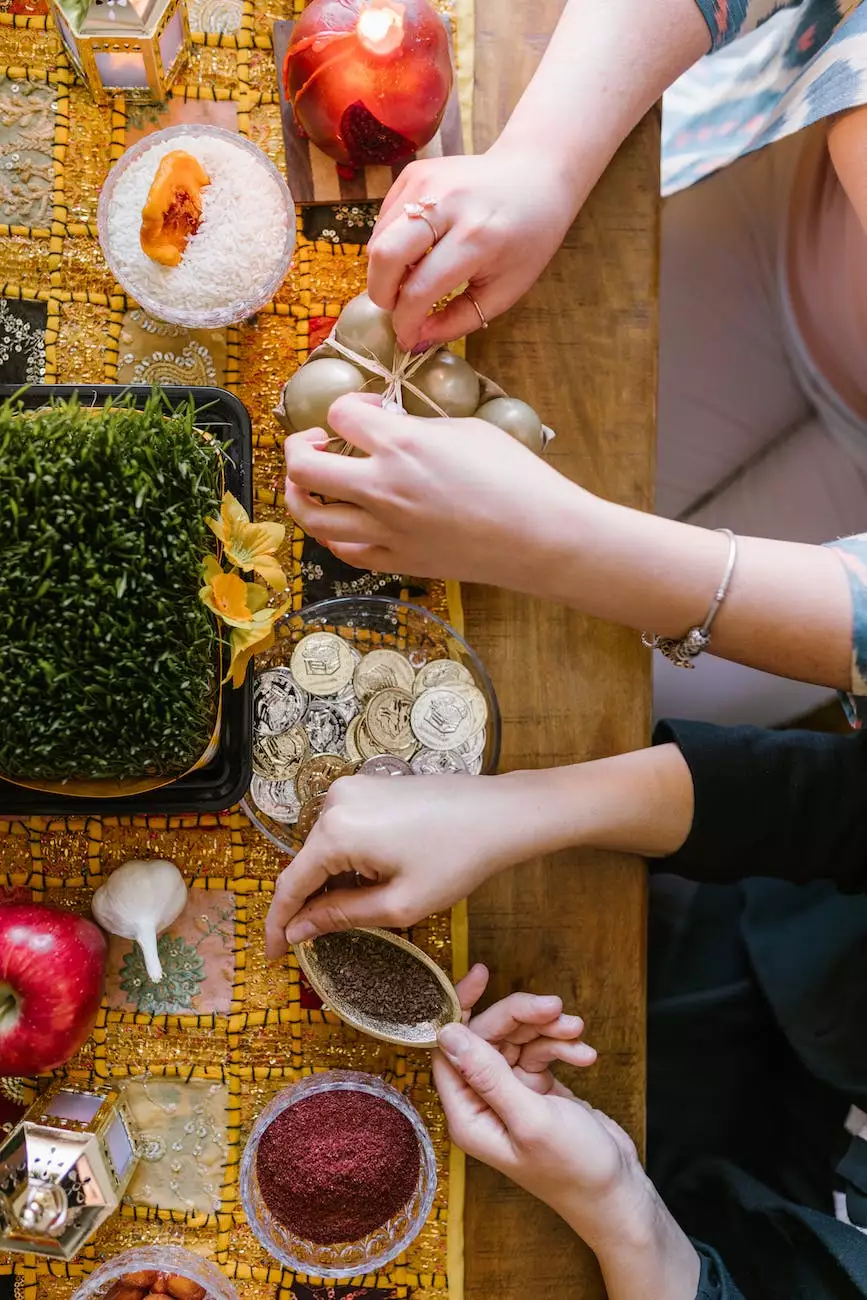Fighting Fascism With Food
Blog
At NJCLT, we believe in the power of culture and cuisine to bring about positive change. In this article, we delve into the fascinating realm of Italian language, culture, and culinary traditions that have played a significant role in fighting fascism throughout history.
Discovering Italy's Rich History
Italy has a long and turbulent past, marked by periods of political turmoil and dictatorships. However, what has always shone through is the resilience and determination of the Italian people to fight against oppression and uphold their values.
The Role of Italian Cuisine in Resistance Movements
Food has long been an essential aspect of Italian culture, bringing people together and acting as a form of self-expression. In times of political upheaval, Italians turned to their culinary traditions as a means of resistance. From the farmhouses of the countryside to the bustling kitchens of the cities, food became a symbol of unity and defiance against fascist regimes.
The Power of Shared Meals
Shared meals became a space for open dialogue, fostering a sense of community and solidarity among those opposing fascism. Families, neighbors, and friends gathered around the dinner table to discuss political ideas, share information, and plan acts of resistance.
Italian Cuisines: A Melting Pot of Flavors and Influence
The diversity in Italian cuisine reflects the rich history of the country, with each region boasting its unique flavors and culinary traditions. From the hearty dishes of the north to the fresh seafood delicacies of the south, Italian cuisine is a celebration of diversity and a testament to the resilience of its people.
The Resistance Cuisine: Simple but Powerful
In times of scarcity and rationing, Italians became masters at creating flavorful dishes using humble ingredients. Pasta, bread, and vegetables formed the backbone of resistance cuisine, showcasing the ingenuity and resourcefulness of the Italian people.
Recipes Passed Down Through Generations
Throughout the darkest times of Italian history, recipes were passed down from generation to generation, safeguarding the cultural heritage and preserving the flavors of resistance. This sharing of culinary knowledge connected people across time and allowed traditions to endure, even amidst the harshest circumstances.
The Feasts of Celebration and Solidarity
Once fascism was defeated, Italy rejoiced in the streets, and food played a central role in these celebrations. Feast tables were set up in piazzas, laden with traditional dishes, marking the return of joy, freedom, and unity.
Preserving Italian Culinary Heritage Today
At NJCLT, we are dedicated to preserving and promoting Italian language, culture, and culinary traditions. Through our language classes, cultural events, and culinary workshops, we aim to keep the spirit of resistance alive and inspire others to fight against all forms of oppression.
Join NJCLT in Celebrating Italian Cuisine
Experience the magic of Italian cuisine by joining our culinary workshops, where you will learn the traditional recipes passed down through generations. Immerse yourself in the flavors and history of Italy, and discover how food can be a powerful tool in fighting fascism and promoting unity.
Conclusion
Culture, language, and cuisine are powerful tools that have fueled resistance movements throughout history. Italy's rich culinary traditions have not only provided nourishment but also served as a form of defiance against fascist regimes. At NJCLT, we celebrate the indomitable spirit of the Italian people and invite you to join us in exploring the depths of Italian language, culture, and cuisine.










